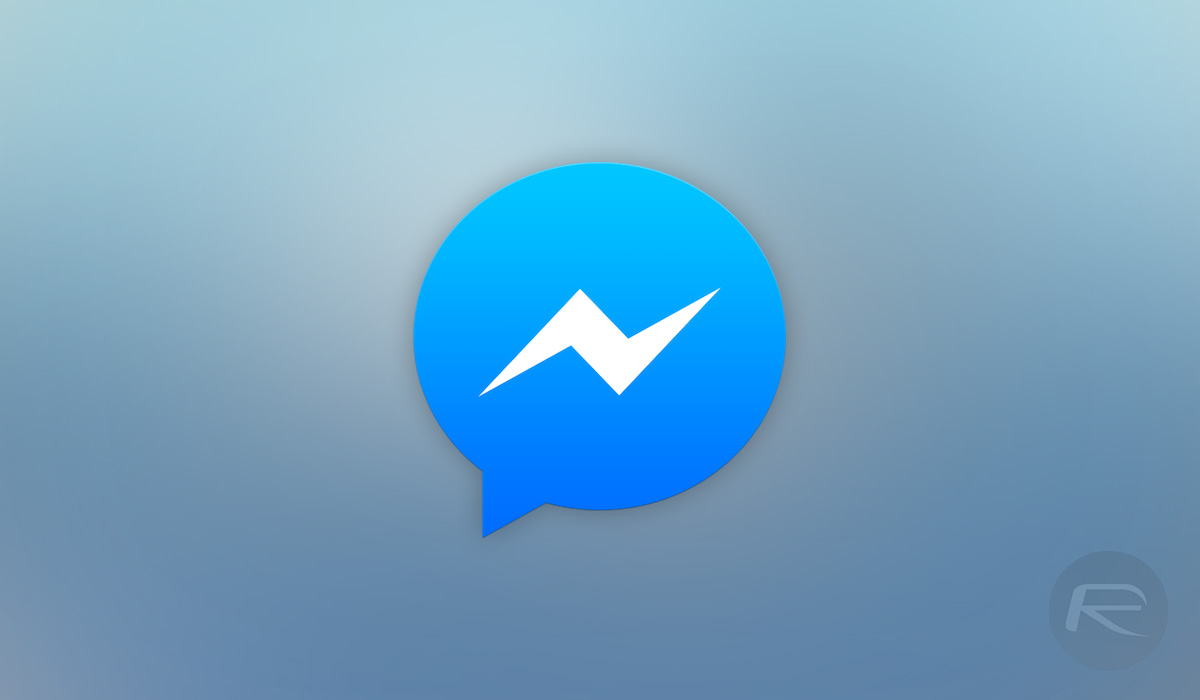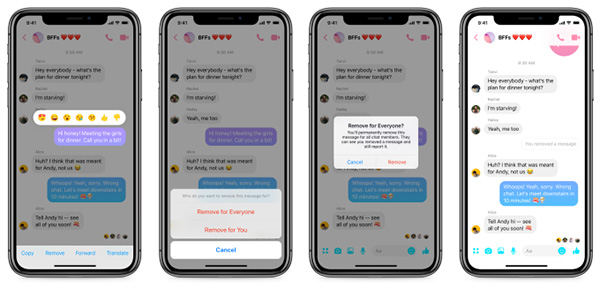Facebook has today rolled out a new Facebook Messenger feature that allows users to delete messages that they have sent, so long as they do it within ten minutes of them being dispatched.
The feature, called Unsend, allows anyone who sends a message to unsend it by tapping on the message in question. They’ll then see an option to either remove the message for everyone, or just for themselves. If they remove the message for everyone, it is replaced with text that says the message has been deleted.

The use cases here are obvious, and we’re sure most people have accidentally sent messages to the wrong person at some point. In fact, this new feature is based on one that came to light last April, when people noted that Facebook CEO Mark Zuckerberg’s messages disappeared of their own accord. It was later confirmed that messages sent by the CEO are removed after a specific time period, something that was apparently designed to protect Facebook from anything akin to the 2014 Sony Pictures email leak.
When it was discovered that Zuckerberg had such a feature at his disposal, users requested it for themselves, hence today’s new feature arrival. Facebook says that it is rolling the feature out right now to anyone using Facebook Messenger on either iOS or Android, so long as they are using the latest version of the app.
Facebook tells The Verge that the new feature will be available today on the latest versions of Messenger for iOS and Android. The company says the new ability is based on the Zuckerberg power, but it underwent “some improvements to provide broader functionality to people using Messenger.”
So there we have it, it may have the worst name possible, but the new “Remove for Everyone” feature might just save you from some embarrassment the next time you miss-send a message.

You may also like to check out:
- Download iOS 12.1.3 Final IPSW Links And OTA Update For iPhone And iPad
- iOS 12.1.3 Release Notes, Changelog And Other Changes You Need To Know About
- How To Downgrade iOS 12.1.3 To iOS 12.1.2 / 12.1 [Guide]
- Jailbreak iOS 12.1.3 / 12.1.2: What’s The Latest Status?
- Download iOS 12.2 Beta 2 IPSW Links OTA Update Released To Developers
You can follow us on Twitter, add us to your circle on Google+ or like our Facebook page to keep yourself updated on all the latest from Microsoft, Google, Apple, and the Web.

